FOCUS
Interview with Thomas Andrillon, PhD student at the Laboratoire de Sciences Cognitives et Psycholinguistique (LSCP)
Thomas Andrillon was part of the team whose study examining the brain's ability to learn from anything, even noise,
has been recently published in Current Biology. He discusses their surprising results, which came out of a collaboration between two DEC labs.
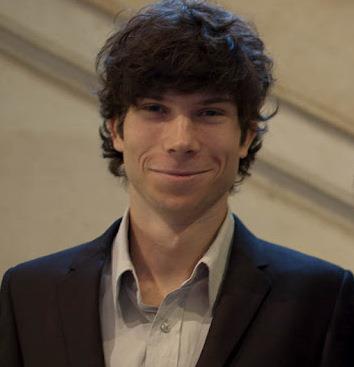
How did you end up at the DEC/LSCP? What steps did you take to get here?
I arrived at the ENS in 2008 after studying biology at a preparatory school in Toulouse. I started therefore at the biology department,
but was already quite interested in the DEC. I decided to fill up my schedule with courses taught at the DEC during my first year,
which helped me realize just how vast the field of cognitive science is. During this time, I also participated in experiments organized
by different DEC labs, including the LSCP. It quickly became a useful way to explore the different research programs of the department,
especially relating to cognitive psychology. I was also lucky enough to arrive at the ENS just as the mini-internship program for ENS
first-year students was being spear-headed by Jérôme Sackur. My first steps as an experimenter myself wound up being at the LSCP under the supervision of Emmanuel Dupoux and Anne Christophe.
At that time, I definitely didn't think I would end up doing my PhD there! During my master's, I worked in other labs in Paris (Mathias Pessiglione, ICM)
and in the US (Giulio Tononi, University of Wisconsin, Madison). When I got back to France, Sid Kouider offered me the challenge of starting
a "sleep lab" within the DEC. I seized the opportunity. It was a chancy bet, because at the time, the building still trembled under the
vibrations of the jackhammers doing the renovation. But I decided to take the risk since I had a gap semester with little required of me. I
then went back to Giulio Tononi's lab for my final year master's internship before returning to Paris to continue what I had started with Sid.
What do you work on? What is your PhD topic?
Sid Kouider's team is interested in different approaches to the study of consciousness. I have, personally, mostly focused on sleep, personally.
Sleep can be seen as a natural modulation of our level of consciousness, and that's why we originally found it so interesting.
Usually in order to study what types of sensory-input processing can be done unconsciously, experimental psychology uses different
techniques to degrade sensory information, such that it is not available on a conscious level, but not so much so as to totally impede any
processing (a delicate balance!). Furthermore, during these experiments, even though the information that the participants need to
process is presented at an unconscious level, the participants themselves are definitely conscious. Sometimes they are even aware
that they are making decisions on unconscious information. Our approach can be seen as an attempt to degrade the participants rather
than the information presented to them, in order to see what kinds of neural processes are possible in a state of overall degraded consciousness
(or even unconsciousness).
We recently showed that the brain can categorize words during sleep, and can make decisions based on semantic information (Kouider et al., Current Biology, 2014).
More recently, we focused on the question of learning: Can we learn while we're sleeping? At the same time,
I became interested in sleep itself and in exploring the neurophysiology of sleep. This past summer, in collaboration with
research teams in the US and Israel, I published an article on the dreaming phase of sleep (REM-sleep). We were specifically
interested in the eye-movements present during REM-sleep (Andrillon, Nir et al., Nature Communications, 2015). These eye-movements
closely resemble those of waking visual environment exploration. We showed that even though our eyelids are closed during REM-sleep, these saccades
are accompanied by an activation of the visual and memory areas that is quite similar to what can be observed when we look at images.
These eye-movements can therefore help us learn about "the stuff dreams that are made of" ! This work on the physiology of sleep is in line with
our more functional approach, here in Paris, given that we have also observed that the brain is more sensitive to auditory input during the parts of REM
sleep without eye-movements. This could be due to the fact that the sleeper is already processing interesting information (i.e. their dream)!
Why did you choose to pursue your education at the DEC?
Like I said, I was originally trained as a biologist, and I've always been passionate about the study of living things.
But that's a very vast topic, and I had to choose what I specifically wanted to study.
Daniel Dennett's work was very influential for me, especially his description of consciousness as one of the last scientific mysteries.
It's a mystery in the sense that scientists still don't really know how to tackle the problem.
Right or wrong, this bit of mystery is really what attracted me to the field.
But above and beyond personal considerations, the DEC's training program, with its focus on interdisciplinarity and the fact that the department
is made up of scientists from all different backgrounds has lived up to my expectations.
Current Biology has just published the article Perceptual learning of acoustic noise generates memory-evoked potentials. This study you participated in is focused on the brain's amazing capacity to learn from everything, even noise. Can you tell us more about it?
 In 2010, Trevor Agus, then a post-doc at the DEC, Daniel Pressnitzer (Laboratoire des Systèmes Perceptifs, DEC), and Simon Thorpe (CERCO, Toulouse)
published an article in the journal Neuron about this surprising form of learning. Acoustically speaking, white noise is characterized by
the fact that all frequencies are equally represented. It's generated using a random series of numbers. There is therefore no recognizable
pattern in the signal. And yet, if you present half-second-long snippets from the same sample sequentially, you can very quickly recognize something,
a sort of rhythm or distinctive sound that repeats itself. The effect is just as immediate as it is clear. Daniel and Trevor brilliantly showed
that this perception of noise was the result of learning. This learning of a sound as complex as white noise is really a mystery with regards
to the neural mechanisms behind it. To give you an idea, half a second of noise represents 22,050 random numbers. Given that it is "pure" randomness,
there is no way to compress this information in a non-arbitrary way. But Daniel and Trevor showed that this memory of noise was retained
even after two weeks! So how does the brain learn these kinds of sounds so quickly and so robustly?
In 2010, Trevor Agus, then a post-doc at the DEC, Daniel Pressnitzer (Laboratoire des Systèmes Perceptifs, DEC), and Simon Thorpe (CERCO, Toulouse)
published an article in the journal Neuron about this surprising form of learning. Acoustically speaking, white noise is characterized by
the fact that all frequencies are equally represented. It's generated using a random series of numbers. There is therefore no recognizable
pattern in the signal. And yet, if you present half-second-long snippets from the same sample sequentially, you can very quickly recognize something,
a sort of rhythm or distinctive sound that repeats itself. The effect is just as immediate as it is clear. Daniel and Trevor brilliantly showed
that this perception of noise was the result of learning. This learning of a sound as complex as white noise is really a mystery with regards
to the neural mechanisms behind it. To give you an idea, half a second of noise represents 22,050 random numbers. Given that it is "pure" randomness,
there is no way to compress this information in a non-arbitrary way. But Daniel and Trevor showed that this memory of noise was retained
even after two weeks! So how does the brain learn these kinds of sounds so quickly and so robustly?
Our original idea was that this type of learning was purely personal and idiosyncratic. In this situation, the brain would develop a
specific sensitivity to this fragment, which in turn would help the detection of repetitions. An alternative hypothesis is that this would
actually be a type of global learning of the repeated sequence (Luo et al., Current Biology, 2013). In order to tease apart these two hypotheses,
we decided to use electroencephalography. We showed that when the brain is exposed to this type of repeated white noise, auditory responses can
be observed that cannot be explained by the acoustic properties of the audio signal. These auditory responses would then be the result of the learning
of a fragment of the repeated section and the processing of this fragment as its own sound once the learning was complete. The auditory responses
seem to be spread out randomly during the repeated portion, confirming the idosyncratic aspect of this kind of memory.
We also showed that despite the complexity of such learning, it was possible to do in an automatic way,
without the participant paying active attention to it, or even being informed about the presence of repetitions. More recently, in another study done
in collaboration with the Hôtel-Dieu Sleep Center (Pr Damien Léger),we showed that this kind of learning could even happen during certain stages of sleep!
Beyond white noise, this work highlights the brain's incredible ability to learn from anything that repeats itself in our environment, even when what
repeats is completely random. It also shows the importance of past experience in the processing and learning of sounds,
and therefore the rather personal nature of our perception, especially when the sounds have little to no clear physical properties.
This study was the result of a collaboration between two DEC labs: the LSP and the LSCP. How was this collaboration organized?
Sid Kouider (LSCP) had the rather surprising idea of using the paradigm designed by Daniel Pressnitzer (LSP)'s team for our sleep studies.
The recent article was just supposed to be a first step. A pilot that went really well in the end! Sid and Daniel know each other well,
so the collaboration was rather natural. The protocol was actually designed sitting around a table at the Montagne Sans Geneviève restaurant.
Daniel and his former post-doc Trevor Agus helped me a lot with the operational part of the study. Sid's knowledge and Daniel's experience were also
incredibly helpful. They are both very open-minded, and this collaboration's success owes a lot to that. And thankfully this is a recurrent
theme in the department. In fact, since this study began, there has been more and more collaboration between our two teams, involving other
researchers (Jérôme Sackur, Alain de Cheveigné, Shihab Shamma). We've also been organizing workshops (PSL/UCL) and seminars (EEG club),
and even more scientific projects are currently being pursued.
Thomas Andrillon, Sid Kouider, Trevor Agus, Daniel Pressnitzer (2015). Perceptual learning of acoustic noise generates memory-evoked potentials. Current Biology 25, 1-7
The Laboratoire de Sciences Cognitives et Psycholinguistique's website: http://www.lscp.net
The Laboratoire des Sytèmes Perceptifs's website: http://www.iec-lsp.ens.fr
Thomas Andrillon's website
Sid Kouider's website
Daniel Pressnitzer's website
NEW APPOINTMENT
Anne-Catherine Bachoud-Lévi has been appointed head of neurology at the Henri Mondor Teaching Hospital in Créteil (CHU Henri Mondor de Créteil)
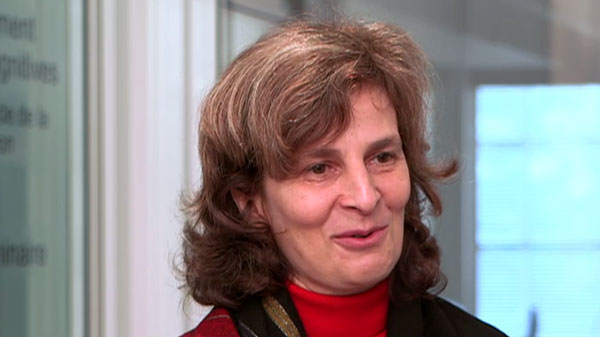
Professor Anne-Catherine Bachoud-Lévi (NPI) has been appointed head of neurology at the Henri Mondor Teaching Hospital in Créteil.
This neurology department is one of the largest in the Paris region and handles both out-patient and in-patient care (with a capacity of 52) for
patients with all kinds of neurological disorders, including organized cohorts with specific neurodegenerative diseases (e.g., Huntingon's and Parkinson's diseases),
as well as for patients with vascular lesions and inflammatory diseases affecting the central and peripheral nervous systems.
Innovative techniques are developed within the department including neural grafts and gene therapy in cooperation with the Parisian Consortium of Hospitals.
The main goal of this department is obviously to provide quality care for its patients.
Its secondary goa, validated by the board of the hospital as well as by the school of medicine of Université Paris-Est,
will be to develop high-level cognitive research, including a cognitive platform developed onsite in collaboration with the DEC.
This will promote parternships associating basic research and clinical application.
Anne-Catherine Bachoud-Lévi is professor of neurology, but also has a scientific background in psycholinguistics and experimental psychology.
She started studying Huntington's disease back in 1993, shortly after the discovery of the gene responsible for it.
She works at the Henri-Mondor Teaching Hospital and has, since 2004, coordinated the National Center of Reference for Rare Diseases for Huntington's.
Professor Bachoud-Lévi is head of the INSERME U955 E 01 team (Interventional NeuroPsychology, NPI) which is physically based in two locations: the Mondor Institute for Biomedical Research within the UPEC School of Medicine in Créteil, and at the DEC.
Two main research programs are developed within the NPI:
– The first is the study of cognitive functions related to human communication: language and social cognition.
– The second is a translational research activity which studies the repair of cerebral structure and innovative therapies such as cellular grafts within the brain.
The team originality is based on an approach unifying clinical research focused on new therapies on the one hand, and basic research in cognition on the other.
This allows for the study of cognition from both a point of view degeneration as well as restoration and cerebral plasticity, as well as promoting better care
for patients with neurodegenerative diseases, especially Huntington's disease. The NPI is supported by work done at the National Center for Reference for
Huntington's disease (Parisian Consortium of Hospitals, Henri Mondor Teaching Hospital, Créteil).
The NPI uses a triple approach:
1) Experimentation with healthy adults with the goal of proposing models of normal linguistic and social cognitive function;
2) Evaluation of language and social cognition in patients with brain lesions or those with neurodegenerative diseases such as Huntington's or Parkinson's, including the use of new technology allowing patient follow-up from patients' homes;
3) Application of innovative therapies (neural grafts, gene therapy) on the same populations in order to restor cognitive function and understand the function processes underlying this restoration.
NPI's website: http://iec-npi.ens.fr
The National Center of References of Huntington's Disease website: http://huntington.aphp.fr
National Day for Huntington's Disease, Friday December 4, 2015, from 9.30 am to 6:00 pm
PRIZE
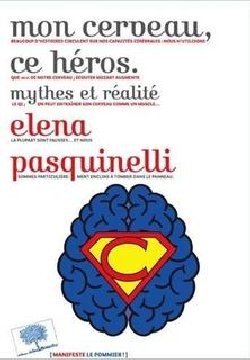
Elena Pasquinelli (COMPAS group) has been awarded the Le Goût des sciences prize
Elena Pasquinelli has been awarded the Le Goût des sciences prize by Thierry Mandon, Secretary of State in charge of Higher Education and Research.
Since 2009,
this prize recognizes the best initiatives and publications in three categories: "general practice book",
"science explained to young people", "scientists communicate." The goal of this prize is to value the work of researchers and publishers,
to encourage vocations and affirm the importance of scientific culture in general contemporary culture.
"Mon cerveau, ce heros" (Editions Le Pommier) by Elena Pasquinelli was rewarded in the "general practice book" category.
Read more about Le goût des sciences 2015 here.
COP21 and the DEC
Round tables at COP21: cognitive science and ecology

The association Scalp! and the Department of Cognitive Science of the ENS are organizing five round table meetings during COP 21 (Nov 30 to Dec 11) discussing topics combining cognitive science, ecology, and public policy, in order to beeter understand decision making concerning the environmental crisis.
Admission is free. But due to the Vigipirate Plan, online registration is mandatory. Register here.
Program:
ENVIRONMENTAL DAMAGE : ACCOUNTABILITY AND COGNITIVE DISSONANCE
Friday 4 December, 7:00 PM, ENS, 29 rue d’Ulm, Salle Jaurès
Round table in English
Several companies and individual actors have direct and indirect influence on the ecological crisis. Moreover, the same individuals might hold beliefs, emotions and behaviour supporting the environment. This tension can be analysed in light of the phenomenon of cognitive dissonance: the cognitive conflicts, in fact, produce a discomfort, which individuals tend to minimise by modifying their beliefs, emotions, behaviours, etc. The objective of this roundtable is to investigate, through concrete examples, the possibility of applying these theories of cognitive dissonance to cases of parties involved in the destruction of the environment, and thus to question their responsibility.
Speakers :
Pierre-Louis Choquet, PhD, School of Geography and the Environment, University of Oxford
Albert Moukheiber, Clinical psychologist and post-doctoral researcher at the FondaMental foundation
Ioannis Mylopoulos, Civil engineer, researcher in natural resources management, Professor at the Aristotle University of Thessaloniki
CAN SHAME SAVE THE EARTH ?
Monday 7 December, from 10 AM to 12:20, ENS, 29 rue d’Ulm, Room 236
Round table in English followed by a free organic lunch
It is often thought that the most efficient and straightforward way to foster environmentally-friendly choices is to use
financial incentive on the one hand and legal punishment on the other. However, these measures do not appear satisfactory,
and the use of other tools becomes necessary. Cognitive sciences research, and in particular social psychology, resting on
the intrinsically social nature of human beings, have shown the impact of reputation on behavioural determination.
In particular, caring to protect one’s self-image proves to be an efficient incentive. Could the same mechanisms be
used to foster ecological behaviours in collective organisations? The purpose of this roundtable is to discuss the
potential of these socio-cognitive resources.
Speakers :
Jennifer Jacquet, Researcher at the Environmental Studies Department, University of New York
>Gloria Origgi, Researcher in philosophy, social sciences and epistemology at the Institut Jean Nicod (ENS/EHESS/CNRS), CNRS
FROM KNOWLEDGE TO ACTION: THE HUMAN MIND IN FRONT OF THE ECOLOGICAL CRISIS
Tuesday 8 December, 7:30 PM, ENS, 29 rue d’Ulm, Salle Jaurès
We now possess clear and abundant evidence that an anthropically-induced climate change is taking place, and that, more broadly,
we are undergoing major environmental disasters (massive deforestation, biodiversity loss, contamination of water, etc.).
The problem, however, is that even if we both individually and collectively know all this very well, we nonetheless seem to
be individually and collectively unable to take any of the drastic decisions that the situation would require. This, it has
been argued, is because of the very nature of the danger we are facing. Unlike daily and pedestrian threats, the ecological
threat is too abstract and too temporally remote to prompt direct action. In other words, the human mind seems terribly bad
to make decisions whose consequences will be perceived only in a few decades. Some cognitive scientists have recently produced
a wealth of empirical data on the mechanisms of risk perception, on biases interfering in them, and on possible ways to undermine
these biases. The goal of this round table is to allow cognitive scientists who are specialized in these questions to exchange with decision makers in the environmental field.
Speakers :
Barbara Bonnefoy, Chercheuse au Laboratoire Parisien de Psychologie Sociale à l’Université Paris X
Eric Guilyardi, Océanographe et Climatologue, Professeur en climatologie et météorologie à
l’Université de Reading, membre de l’Institut Pierre Simon Laplace
Annamaria Lammel, Anthropologue et spécialiste de psychologie environnementale à
l’Université Paris VIII
ARGUMENTATION AND ENVIRONMENTAL NEGOCIATION
Wednesday 9 December, 8:00 PM, ENS, 29 rue d’Ulm, Salle Jaurès
At a collective level, taking decisions preserving the environment requires governments to coordinate and to make common agreements.
Environmental negotiations thus play a key role. Activities such as arguing and discussing tap into cognitive resources and
mechanisms which have been extensively studied by cognitive scientists. Experts in argumentation could indeed provide a very
interesting input as to how negotiations should be organized and as to how negotiations should unfold in order for them to be the
most fruitful, that is in order for them to lead to agreement and to concrete decisions. By the same token, the shape
of the debates and the structure of collective discussions could be considerably improved if it were designed on thebasis of experimental data documenting how collective decisions can optimally be made.
Speakers :
Alban Bouvier, Philosophe et chercheur en sciences sociales à l’Institut Jean Nicod et à
l’Université Aix-Marseille
Hugo Mercier, Chercheur au CNRS et membre du centre de sciences cognitives de l’Université
de Neuchâtel
Laurent Mermet, Professeur en management environnemental à l’AgroParisTech et chercheur au CESCOCentre d’Ecologie et de Sciences de la Conservation
FROM FOLK MODELS OF NATURE TO BIODIVERSITY CONSERVATION
Thursday 10 December, 7:00 PM, ENS, 29 rue d’Ulm, Salle Jaurès
Across cultures, humans have developed distinct models of nature. These various ways of categorizing nature have direct consequences as to how humans interact with plants and animals and preserve the ecosystems. Indigenous cosmologies provide alternative models of nature and alternative ways of managing natural resources. Cognitive anthropologists and cross-cultural psychologists have thoroughly investigated folk models of nature and the various ways in which plants and animals are accordingly managed. They have also paid attention to the mechanisms through which ethnobiological knowledge is transmitted from adults to children. Given that certain folk models of nature prove to be ecologically quite destructive while others prove to be particularly synergetic and resilient, decision makers could learn a great deal from the data documenting the various ways of interacting with the environment.
Speakers :Pierre-Henri Gouyon, Professeur au Muséum National d’Histoire Naturelle
Olivier Laroussinie, Directeur de l’Agence des Aires Marines Protégées, futur directeur de l’Agence Française pour la Biodiversité
Marie Roué, Anthropologue de l’environnement au Musée de l’Homme
Samuel Roturier, Chercheur au Musée de l’Homme
Emmanuel Sander, Chercheur en psychologie, spécialiste du raisonnement et de la compréhension, professeur à l’Université Paris VIII
Scalp!'s website
IN THE MEDIAS
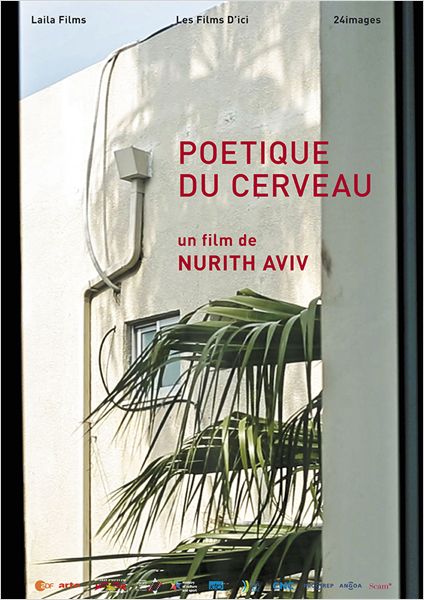
Cognitive science in movie theaters soon
Based on photographs from her personal archives, and the memories and reflexions that these images evoke in her,
the filmmaker Nurith Aviv meets five cognitive and neuroscientists among whom Sharon Peperkamp (LSCP), as well as a psychiatrist-psychoanalyst to question them on issues such as memory, mirror neurons, bilingualism, reading, smell and traces of experience.
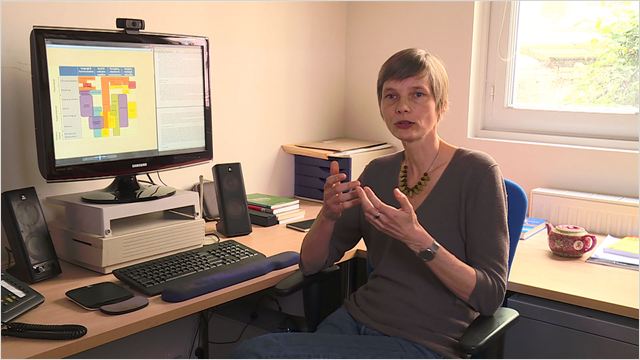
In movie theaters starting December 2nd.

Interview of Joëlle Proust (IJN) in 3ammagazine.com
Joelle Proust has been interviewed about metacognition by Richard Marshall for the litterary webmagazine 3ammagazine.com. The interview has been published online November 21st :
http://www.3ammagazine.com/3am/metacognition/
GRANTS
Christian Lorenzi (Laboratory for Perceptual Systems, LSP) has received an ANR grant entitled SpeechCode
This grant is shared with Judith Gervain (Laboratory for the Psychology of Perception, Université Paris Descartes) and Jean-Pierre nadal (LSP, ENS).
Abstract:
The general objective of the SpeechCode project is to understand how the developing auditory system encodes the speech signal, providing representations
that contribute to language acquisition. The project is thus organized around two, closely related specific objectives: (i) to analyze and characterize speech
and other speech-like signals in terms of computational and mathematical principles of neural coding and information processing in the auditory system;
and (ii) to identify and describe early perceptual abilities present at the onset of language development allowing human infants to recognize speech as a relevant
signal for language acquisition.
SOME RECENT PUBLICATIONS
Paul Egré, Octobre 2015, Le raisonnement par récurrence: quel fondement ?, La Gazette des Mathématiciens (Société Mathématique de France), n°146: 20-30
Abstract:
Quel est le fondement du raisonnement par récurrence, ou principe d’induction mathématique ? J’examine trois réponses à la question.
Une réponse formaliste : la question est un faux problème, l’induction est un axiome parmi d’autres. Une réponse de type intuitionniste,
celle de Poincaré : le fondement de l’induction est un acte de l’esprit, qui condense une infinité d’inférences logiques.
Enfin la réponse logiciste de Frege : l’induction suit d’une définition explicite de la notion de nombre entier naturel.
Le but de cet article est de comparer ces positions et de rendre accessible le Théorème de Frege, qui donne une preuve des axiomes de
Peano en logique du second ordre et dérive ainsi le principe d’induction comme un théorème.
Kouider, S., Long, B., Le Stanc, L., Charron, S., Fievet, A-C., Barbosa, L.S., & Gelskov S. (2015). Neural dynamics of prediction and surprise in infants. Nature Communications, 6:8537.
Abstract:
Prior expectations shape neural responses in sensory regions of the brain, consistent with a Bayesian predictive coding account of perception.
Yet, it remains unclear whether such a mechanism is already functional during early stages of development. To address this issue, we study
how the infant brain responds to prediction violations using a cross-modal cueing paradigm. We record electroencephalographic responses to
expected and unexpected visual events preceded by auditory cues in 12-month-old infants. We find an increased response for unexpected events.
However, this effect of prediction error is only observed during late processing stages associated with conscious access mechanisms. In contrast, early perceptual components reveal an amplification of neural responses for predicted relative to surprising events, suggesting that selective attention enhances perceptual processing for expected events. Taken together, these results demonstrate that cross-modal statistical regularities are used to generate predictions that differentially influence early and late neural responses in infants.
Friederike Moltmann, States vs Tropes. Commentary on Marcyn Morzicki: "Degrees as Kinds of States". Natural Language and Linguistic Theory 33.3., special issue edited by B. Gehrke and E. Castroviejo Miró, 2015, pp. 829-841.
Abstract:
In this commentary on Anderson and Morzycki’s article ‘Degrees as kinds’, I raise some issues about the interchangeability of concrete (or Davidsonian) states (in the sense of Maienborn 2007) and tropes (particularized properties, accord- ing to Moltmann 2009), as well as the category of concrete states as such. I will also raise some issues for Anderson and Morzycki’s use of kinds of concrete states for constructing degrees and their analysis of the comparative.
CALENDAR
November 27, 2015
The Experimental Philosophy Group (IJN)
Christoph Witzel (LPP, Université Paris Descartes) : "Cognitive effects on colour perception"
November 27, 2015
Doc'in Nicod (IJN)
Anna Giustina (IJN) : "A Defense of the Reliability of Introspection"
November 30, 2015
PaCS seminar (IJN)
Aïda Raoult (Chicago/Marseille) : "Reviewing Tests for Machine Consciousness"
November 30, 2015
Thesis defence
Anatoly Buchin (GNT/LNC) : "Modeling of single cell and network phenomena of nervous system : ion dynamics during epileptic oscillations and inverse stochastic resonance"
December 1st, 2015
New Ideas in Theoretical Neuroscience (GNT/LNC)
Adam Kepecs
December 2, 2015
Mind and Language seminar (IJN)
Robert May (UC Davis) : "Pejoratives as fiction"
December 3, 2015
Groupe de travail Phislosophie Expériementale (IJN)
Roman Feiman (Harvard University) : "The logic in language: How all quantifiers are alike, but each quantifier is different"
December 4, 2015
The Experimental Philosophy Group (IJN)
Video conference avec le groupe de Miriam Teschl
December 2, 4, 8, 2015
Lecture series - LINGUAE 2015 (IJN)
Didier Demolin (Univ. Sorbonne-Nouvelle)
December 4 to 10, 2015
Round-tables COP21 : cognitive science and ecology
Read more
December 7, 2015
PaCS seminar (IJN)
Alex Grzankowski (Texas Tech/Cambridge) : "A Relational Theory of Non-Propositional Attitudes"
December 7, 2015
Education & Cognition seminar (IJN)
Francesco Avvisati & Francesca Borgonovi (OECD analysts, PISA Project) : "Testing the testing effect"
December 7, 2015
Workshop on Extensive and Intensive Recordings of Children's Language Environment (LSCP)
En savoir plus
December 8, 2015
DEC Colloquium
Didier Démolin : "Syntatic structures and organization in music from the perspective of oral tradition musical systems"
December 9, 2015
Mind and Language seminar (IJN)
Gregory Bochner (Université libre de Bruxelles) : "The Problem of the Essential Index"
December 9, 2015
The Experimental Philosophy Group (IJN)
Martin Fortier (IJN) : “Supernatural thinking as probabilistic reasoning: Studying children’s selective learning from informants who exhibit supernatural powers”
December 11, 2015
Workshop - "Rôle et qualité d'agent"
Read more
December 11, 2015
Aesthetics and Cognitive Science seminar (ÆCS)
Read more
December 11, 2015
Doc'in Nicod
Claudia Picazo Jaque (IJN/LOGOS)
December 14, 2015
Naturalizing Epistemic Norms (IJN)
Philippe Rochat (Emory University)
December 14-15, 2015
New Ideas LSP
Read more
December 15, 2015
Naturalizing Epistemic Norms (IJN)
Bence Nanay (Professor of Philosophy, University of Antwerp) : "Mental imagery and the epistemic cachet of perception"
December 16-18, 2015
The teacher's cognition
Read more
DEC calendar cognition.ens.Fr.
DEC Colloquium : http://www.cognition.ens.fr/ColloquiumAgendaENG.html.
Susbcribe to the newsletter
Unsubscribe from the newsletter
